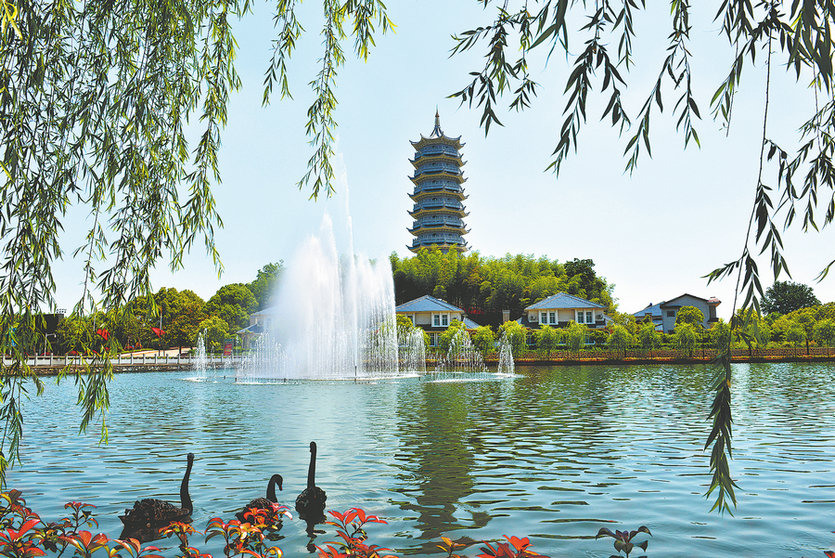

Visitors who travel to Jiayu county, Xianning city, in Central China's Hubei province for the first time are often impressed with its culinary offerings, especially the fish and lotus roots.
Almost every restaurant offers dishes featuring these ingredients.
Xiao Wo, a poet from Beijing, once remarked on how amazing it is that some restaurants can make an entire table of dishes with either ingredient.
Located in the south of Hubei, renowned as a province of a thousand lakes, Jiayu covers an area of 1,017 square kilometers, and about one-third of that is covered in water.
It has 21 lakes, is home to 15 types of fish and yields 60,000 tons of lotus roots a year.
Jiayu, which literally means "good fish" in Chinese, is one of two counties named after the aquatic creatures. The other is Yutai in Shandong province.
Jiayu got its name from the following lines of the poem The South Produces Good Fish from The Book of Songs, the oldest existing collection of Chinese poetry, dating back to between the 11th and 6th century BC:
"The south produces good fish, and the fish swim and wag their tails.
There is fine wine at the gentlemen's banquet, and guests feast and drink merrily."
Aside from its pescatarian-friendly cuisine, Jiayu is also famous for its lotus roots, wudu (a clay instrument) and culture of the Three Kingdoms (220-280) period.
With the title of the National Garden City conferred by the Ministry of Housing and Urban-Rural Development of the People's Republic of China, Jiayu's appeal to visitors is strongest in spring, when sprouts emerge from willow branches by the lakes.